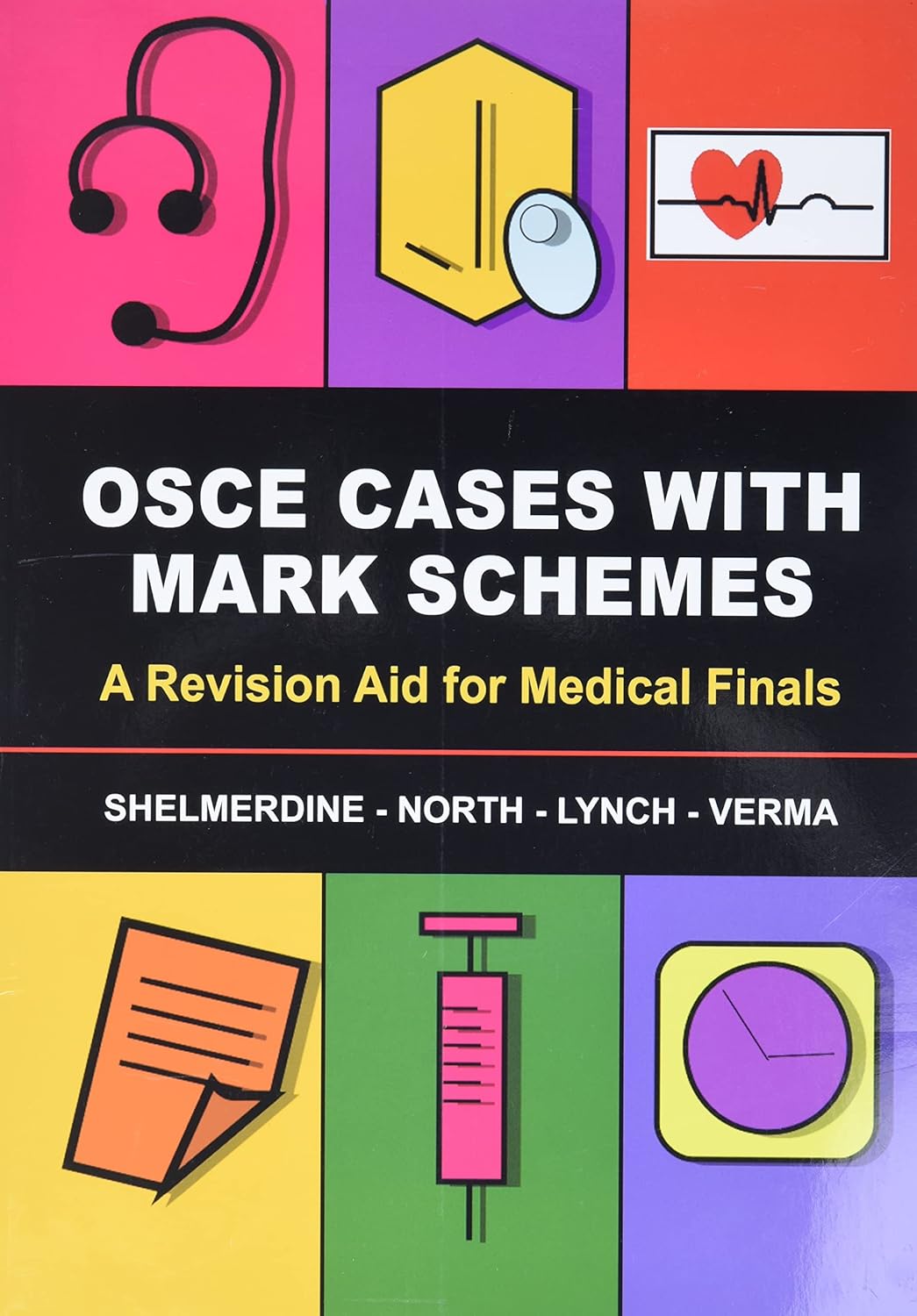About this deal
Appropriately dealing with an emergency situation using a DRABCDE response (and being able to deliver a clear handover)
Condition: Very Good. Item in very good condition! Textbooks may not include supplemental items i.e. CDs, access codes etc. You can also use our software to study as a group easily by sharing a PIN with friends and assigning them their relevant roles (e.g. examiner, patient, student). OSCE group study practice Before I apologize, here I am not offering it for free, but you have to join our service, and get a trial period of 14–30 days, you can cancel it if it is uncomfortable. Thank you so much .. Hope you are pleased to join our service, and you can read all the books you want ..Considering that medicine here at UCLMS is a spiral course, you are expected to recall knowledge from earlier years in your later years. Therefore, based on this information you know that you will need to revise the statistics we learnt in CPP to do well in this station. This same principle applies to Ethics and Law stations as previously learnt knowledge is required in addition to attending your dedicated CPP sessions in fourth year. This tutorial is really useful in covering the important topics you need to know for both types of stations and is available on the Clinical years Treasure Trove (which contains lots of tutorials/resources to help you prepare for exams). I would also recommend creating Use of Evidence Stations yourselves, by finding research articles, looking at the abstracts and coming up with questions to ask so that you can practise doing these stations with those in your OSCE Group. Spend time on the wards It can be difficult to know where to begin with preparing for the OSCEs, but the first thing you should do is to form OSCE groups, if you haven’t already. Whether it be your friends, flatmates or those in your firm, having a group of people you can meet up with on a weekly basis either in person or remotely to practise doing OSCE stations is really beneficial. You’ll get the opportunity to run through multiple stations from various resources testing lots of different skills. As such, this should help prepare you for how you approach each particular station when it comes to your OSCE. Whenever you go into placement, set a goal in your mind about what you want to gain out of attending based on the skills required of you as a junior doctor. Ask your supervising clinician which patients would be good to clerk/examine and speak to them about your differential diagnosis as well as coming up with a management plan. Offer to document in the notes during ward rounds (remember to get this countersigned by a doctor), as this will be your bread and butter when you become a Foundation Year 1 doctor. Look up any investigations the patients may have had e.g. blood test results, ABG analysis, ECG, chest x-ray and try to interpret these results yourself before discussing with your doctor. Especially with imaging, it’s not only good practice to interpret what you see but also to present your findings as this could also be asked of you in the OSCE. Seek out opportunities to practise procedures such as cannulation, ABG’s, catheterisation as you are required to be confident in performing these when you become a doctor plus, you get a sign off for your procedures list so it’s a win-win situation. The Ultimate OSCE History Guide: 100 Cases, Simple History Frameworks for OSCE Success, Detailed OSCE Mark Schemes, Includes Investigation and Treatme
The Ultimate OSCE History Guide: 100 Cases, Simple History Frameworks for OSCE Success, Detailed OSCE Mark Schemes, Includes Investigation and Treatment Sections, UniAdmissionsShelmerdine, Susan (St Georges Hospital, London)|North, Tamara (Royal Surrey County Hospital, Guildford)|Lynch, Jeremy (Queen Victoria Hospital, East Grinstead)|R. Verma, Aneesha (St Mary\'s Hospital, London) A Use of Evidence Station usually entails a patient coming in to see you about a research article they’ve read online; about a particular drug they’re taking or have heard about. You will be shown the abstract of the article and will be asked questions by the patient regarding what the conclusion of the article is, what certain words mean (e.g. sensitivity, number needed to treat) and whether you would recommend the patient taking the medication based on their history. Presenting Complaints - Psychiatry History Taking - Pediatrics History Taking - Obstetrics History Taking - Gynaecology History Taking - Medical Ethics - Difficult Communication Scenarios - Pharmacology - Consenting - Explanation of Management and Results SECTION TWO, PERFORMANCE STATIONS The book includes chapters on communication skills, medical ethics, explanation stations, paediatrics and obstetrics and gynaecology subjects which are sometimes neglected elsewhere. All four authors have taken part in medical student teaching and OSCE examinations. They understand what will earn marks in the actual exam. All the OSCE scenarios are from stations previously examined in the UK's top medical schools. This book prepares the student for what the actual finals exam will be like. Our OSCE bank (a.k.a. OSCE cases) is ideal for students at all stages of training, including those wanting to practice OSCE stations for medical finals. We also provide free sample OSCE stations for all of the station types. New: AI virtual patients
 Great Deal
Great Deal 